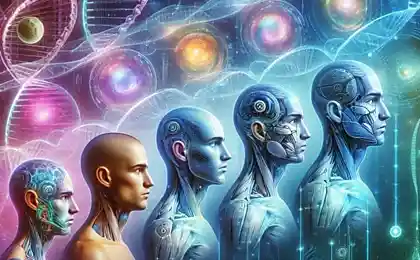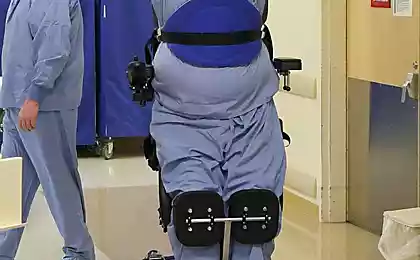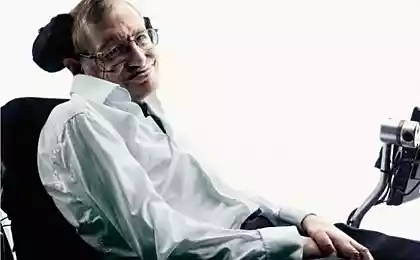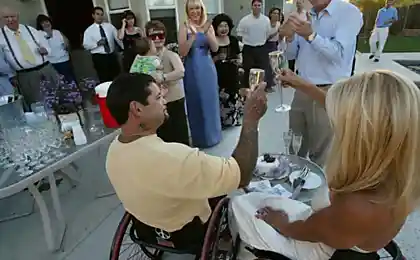Progress in the development of modern neurointerface, electronics, precision mechanics and even 3D-printing will allow in the future do not freak cyborgization tehnogikov and fans of cyberpunk, and almost everyday tool for the return of the people "in the system." A striking example is Hugh Herr. Probably someone of you have already heard about this research team leader
Biomechatronics from the Massachusetts Institute of Technology. He became famous for his developments in the field of bionic prostheses. Herr himself once lost both legs, so that the subject of his research over close to him. Team of scientists under his leadership managed to create a few samples of breakthrough prostheses. Thanks to its own inventions, Herr still continues to do his longtime passion - climbing.
Life and achievements Guerra can be called a perfect illustration of the phrase "the best way to predict the future - to create it." At 17, he was already an experienced climber, but during a snowstorm, he strayed from the group and spent three days on the slopes. When he was found, both feet were so frostbitten that they had to be amputated just below the knee. At this age, it will break anyone. And the more mature people like misfortune often completely distorts life. However, the young man kept decent blow of fate: barely healed joints, as he began to try various models of dentures to go back to the mountains. However, nothing of what he tried, absolutely not suitable for this task.
And Herr decided to create their own dentures. All his further education appeared subordinated to the main goal. And today, 33 years later, Herr walks, runs, and climbs mountains on he developed high-tech prostheses. Moreover, today it is one of the most advanced designs among bionic artificial limb.
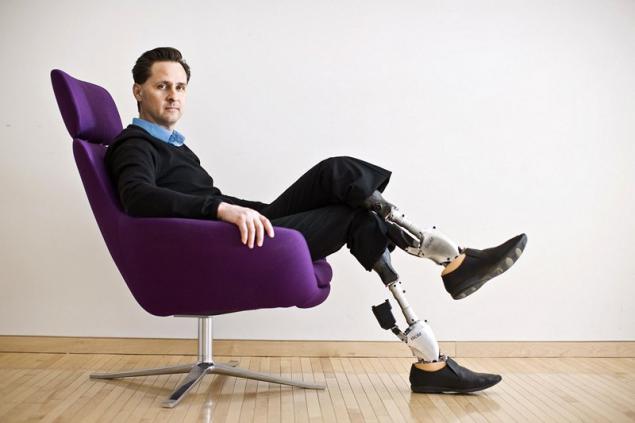
It is logical that Herr is one of the most influential apologists use electromechanical solutions for people who have lost one or another part of the body. Here supporters of biological (ie, transplantation) approach is difficult to say something.
Today around the world, scientists and engineers are developing electronic systems and structures that can somehow receive the signals from the human body, sent lost organs and limbs. One of the most promising areas are neyroimplantaty. Connecting directly to the nervous system will bring cyborgization to a whole new level, to give an unprecedented impetus to its development. If the research team focused on managing Guerra artificial limbs, a number of other groups are working ... control emotions. For example, experiments are conducted on the treatment of depression (Clinical this
депрессии, rather than the blues) deep brain stimulation via implanted electrodes. You can also mention the work of memory chips to implant patients who have problems with its own memory.
Corporal electricity h4> 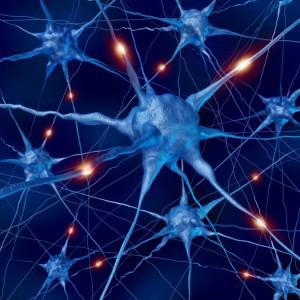
At the forefront of modern bionics is the postulate that the very wide range of diseases and physical defects is much more effective to correct using the "language" of electrical signals sent to the brain. We can control the movement of the body, mood and memory. It is possible that in 50 years the progress in neurointerface will create implants and prostheses, which will be fully assume the function of damaged and lost organs and limbs.
On the role of electricity in the transmission of control impulses in the nervous system became known in the 18th century. Their source is the brain. Modern medicine is almost entirely based on the use of chemicals that can affect the behavior of neurons and cells of the body. However, in the coming 21st century, you may experience a new, electric medicine, based on the direct impact will lie control pulses to the nervous system.
Let's go back again to Herr. His team was able to achieve a very high natural movement of prostheses. The key to this is to record and decoding the pulses sent from the brain to the muscles. Below depicts an early bionic prostheses developed under the direction of Guerra.
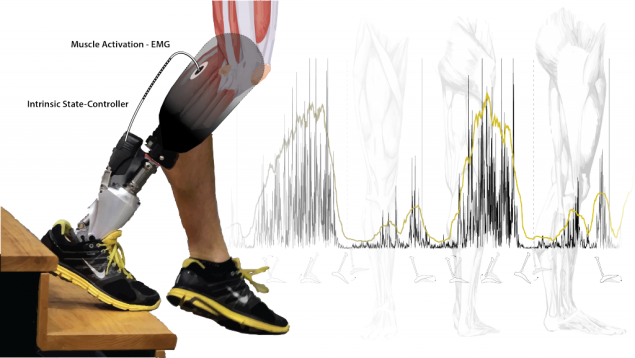
Such a control scheme prosthesis - reading signals via the intermediate muscle - has its drawbacks. Ideally, it is best to receive control information directly from the nervous system and transmit it immediately prosthesis. This will allow a tremendous increase in precision of movement and speed of reaction. Furthermore, the possibility arises of feedback, i.e. transmission of data to the nervous system from the prosthesis. When a person is able to perceive the world around the prosthesis, it will be the greatest breakthrough in bionics.
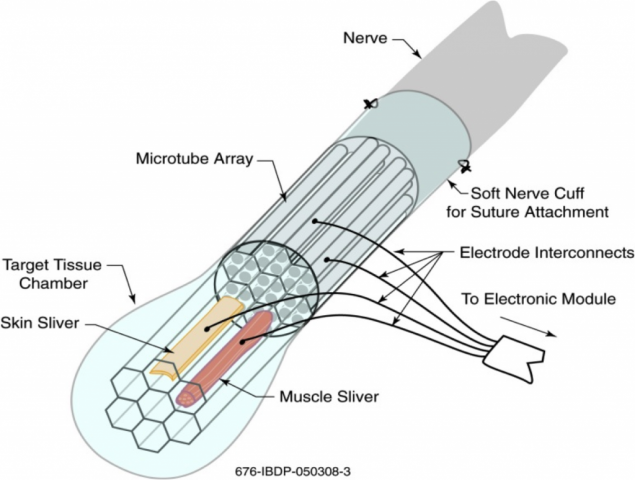
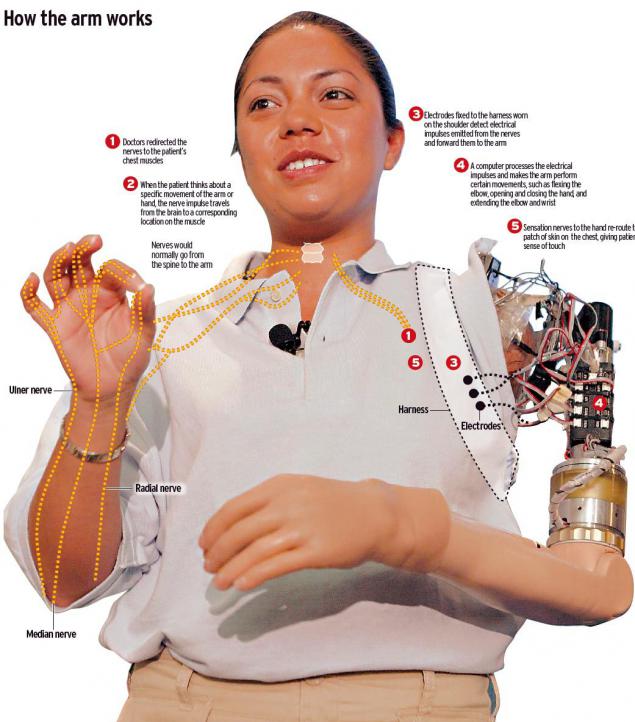
A number of recent samples of bionic prostheses are already showing excellent precision and accuracy of movements:
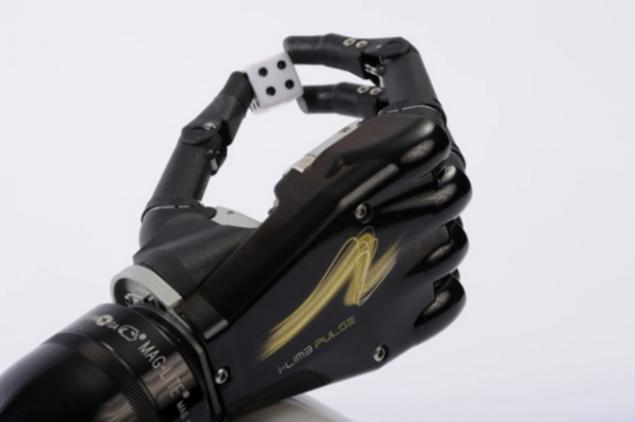
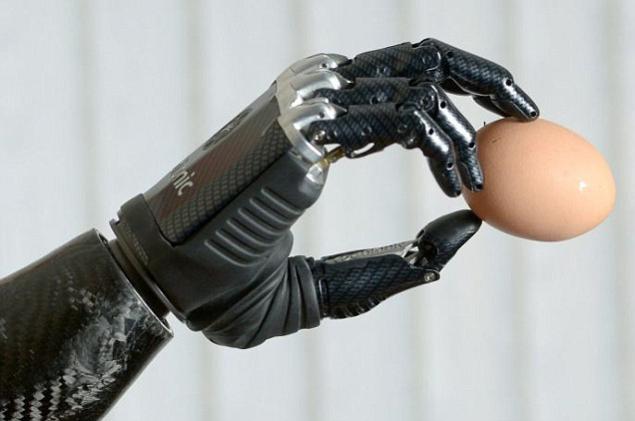
Deep brain stimulation h4> Unlike physical disability when there is a boundary "before / after" depressed patients can not identify a time when their illness began. Often they do not even consider themselves sick. Depression - a state of mind in which you can stay for years without experiencing the slightest pleasure out of life, not seeing hope.
As mentioned above, one of the experimental treatments for depression is DBS , deep brain stimulation. In areas that are responsible for depression, implanted electrodes to which a certain electrical impulses. This is still an unexplored field of application of DBS. In different countries, conducting research treatment options DBS not only depression, but a whole range of neurological and psychiatric disorders, including obsessive-compulsive disorder and post-traumatic syndromes. However, scientists do not know much yet about which areas of our brain "responsible" for such diseases.
The first results are encouraging: people who implanted the experimental samples immediately notice an improvement in their emotional state as soon as the device is started. And after the end of the experimental period, most will want to retain the implant DBS-working. And it can not be attributed to the placebo effect, as when the batteries sit, the observed deterioration test.
Much more able to advance in the management of motor functions. In particular, in the world is about 100 000 patients with Parkinson's syndrome, which helps to cope with DBS tremor. Very impressive demonstration of the effectiveness of technology:
Memory and thinking h4> It is possible that through the same 50 years cyborgization will be beneficial from an economic perspective. With increasing life expectancy and the extension of working age more and more influence on the replenishment of the budget will have different age ailments. In particular, the natural deterioration of memory and thinking skills. And it is possible that it would be cheaper to implant "cognitive prosthesis" than 20 years of care for patients with senile dementia.
Today, the possibility of conducting research Alzheimer's disease using implants memory. In particular, Professor Theodore Berger conducted experiments to implant electrodes in the гиппокамп rat brain section that is responsible for storing information. Berger was able to distinguish two types of signals from neurons processing the current lessons learned, for example, you have to press a lever rat to get a sweet treat; as well as signals from neurons that send information to the area of the brain responsible for memory. After mapping relationships can record input signals and predict the corresponding pulses of memorization. Moreover, Berger has conducted experiments on the recording in rat brain false memories about what lever activates the issuance of goodies. False in the sense of not "wrong", just memories were introduced rats that have not yet participated in the experiment with levers.
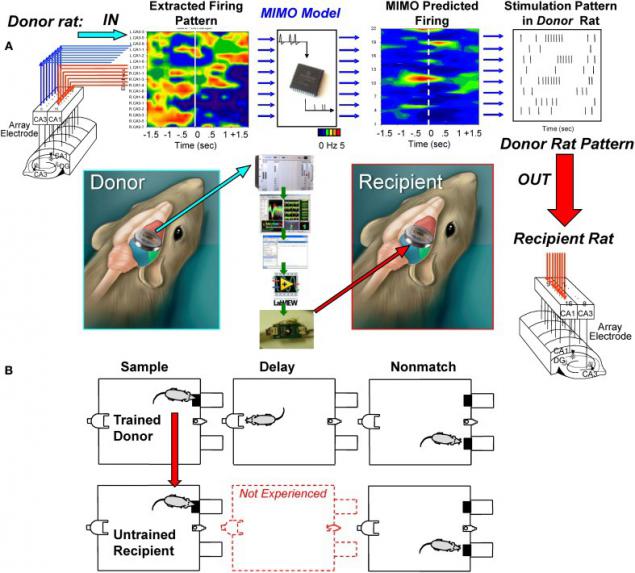
Moreover, the research team has already conducted similar Berger experiments with primates , and in the next few years, they hope to do the same is true in humans. Professor'm sure 50 years old will simply include an implanted memory module to remember where they Delhi keys or the name of their grandchildren. After this prediction come immediately to mind many fiction books and movies that are played false memories of the main character.
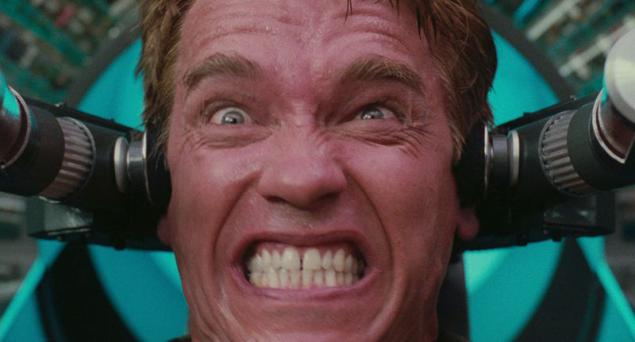
Existential concerns h4> It is quite natural that the enthusiasm of scientists like Guerra and Berger regarding our future kiborgizirovannogo not always enthuses ordinary people, which is the most future and predicting. Many scares the idea that their body will be implanted some piece of iron with chips. And one thing prosthesis, and quite another when we promise something massively implanted in the brain. In these fears keep such philosophical questions as whether there will be a cyborg person if more than half his body will be replaced with artificial components?
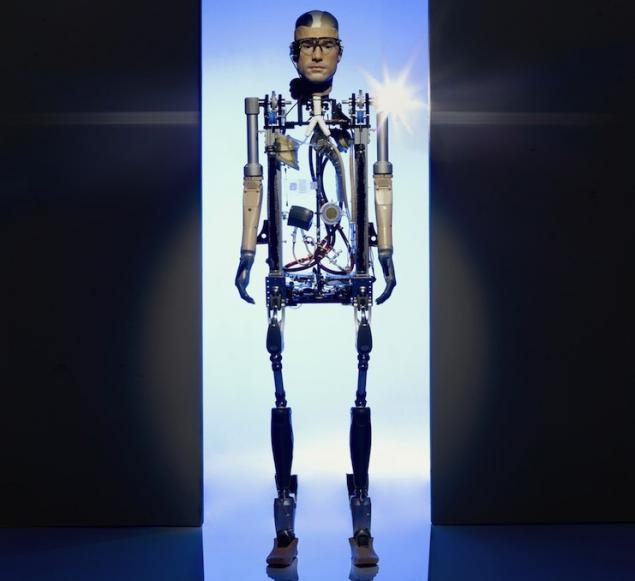
Cyborgization supporters believe that such reflection will disappear by itself with the development of technology and society of addiction. Especially when you will appear more and more satisfied patients various bionic device back the joy of life and the usefulness of existence.
In response, the sound fears of another plan: as soon as the technology reached a high enough level, there is a widespread demand for bionic implants and prostheses not only on the part of the disabled and the sick. There exists a lot of perfectly healthy people who wish to become cyborgs for expanding physical capacity of the body. Especially strong is this tendency may be among those who are already approaching old age. Imagine that by the age of 50 you have no past flexibility and freedom in the joints and ligaments, and your friend has replaced his hand on the artificial, it upgrades every few years and feels like a boy. Here anyone will think.
About bionic implants memory and say nothing, the demand for them is clearly off-scale. We prepared for this item cyborgization, perhaps even more than to prostheses, thanks all the same fiction. One notable example is the character of Simon Illian book writer cycle Lois McMaster Bujold about Майлзе Vorkosigan . Illyana in his youth was lived in by an eidetic memory chip, through which he could with cinematic precision remember every second of his life. In reality, the free flow of bionic chip can lead to a kind of caste people with higher cognitive abilities. They will be able to study and career advancement, which may result in the emergence of a new social class of cyborgs, which will compete with the traditional upper class for the management of the world. The consequences will be unpredictable, from a complete ban on bionics to the formation of the supreme caste people who have been granted the opportunity to improve your body and mind with the help of high technology.
Source: geektimes.ru/company/asus/blog/246262/















